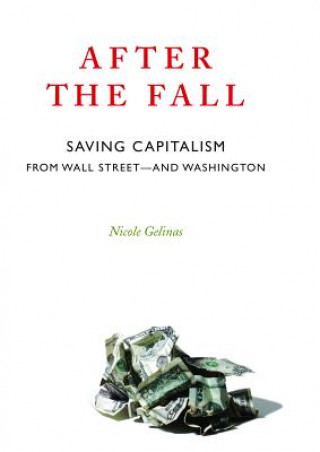
Kód: 09242492
After the Fall
Autor Nicole Gelinas
Robust financial markets support capitalism, they don't imperil it. But in 2008, Washington policymakers were compelled to replace private risk-takers in the financial system with government capital so that money and credit flows ... celý popis
- Jazyk:
 Angličtina
Angličtina - Vazba: Pevná
- Počet stran: 250
Nakladatelství: Encounter Books,USA, 2010
- Více informací o knize

Mohlo by se vám také líbit
-

History of the Rebellion and Civil Wars in England, Begun in the Year 1641
1151 Kč -

Let's Talk
633 Kč -

Islam - History, Religion, and Politics 3e
1096 Kč -

Angel Killer
223 Kč -

Book with answers
958 Kč -

Tribute to Spock: A Reference Guide
662 Kč -

How To Do Your Dissertation in Geography and Related Disciplines
1666 Kč -

White Fox
541 Kč -

Mi Encuentro Con La Princesa Diana
379 Kč -

Lincoln
749 Kč -

Cape Paterson
557 Kč -

Historical Analysis of The Creek Indian Hillabee Towns
727 Kč -

Thousand Veils
662 Kč -

Believers' BootCamp
323 Kč
Darujte tuto knihu ještě dnes
- Objednejte knihu a zvolte Zaslat jako dárek.
- Obratem obdržíte darovací poukaz na knihu, který můžete ihned předat obdarovanému.
- Knihu zašleme na adresu obdarovaného, o nic se nestaráte.
Informovat o naskladnění knihy
Zadejte do formuláře e-mailovou adresu a jakmile knihu naskladníme, zašleme vám o tom zprávu. Pohlídáme vše za vás.
Více informací o knize After the Fall
Nákupem získáte 57 bodů
 Anotace knihy
Anotace knihy
Robust financial markets support capitalism, they don't imperil it. But in 2008, Washington policymakers were compelled to replace private risk-takers in the financial system with government capital so that money and credit flows wouldn't stop, precipitating a depression. Washington's actions weren't the start of government distortions in the financial industry, Nicole Gelinas writes, but the natural result of 25 years' worth of such distortions. In the early eighties, modern finance began to escape reasonable regulations, including the most important regulation of all, that of the marketplace. The government gradually adopted a "too big to fail" policy for the largest or most complex financial companies, saving lenders to failing firms from losses. As a result, these companies became impervious to the vital market discipline that the threat of loss provides. Adding to the problem, Wall Street created financial instruments that escaped other reasonable limits, including gentle constraints on speculative borrowing and requirements for the disclosure of important facts. The financial industry eventually posed an untenable risk to the economy -- a risk that culminated in the trillions of dollars' worth of government bailouts and guarantees that Washington scrambled starting in late 2008. Even as banks and markets seem to heal, lenders to financial companies continue to understand that the government would protect them in the future if necessary. This implicit guarantee harms economic growth, because it forces good companies to compete against bad. History and recent events make clear what Washington must do. First, policymakers must reintroduce market discipline to the financial world. They can do so by re-creating a credible, consistent way in which big financial companies can fail, with lenders taking their warranted losses. Second, policymakers can reapply prudent financial regulations so that markets, and the economy, can better withstand inevitable excesses of optimism and pessimism. Sensible regulations have worked well in the past and can work well again. As Gelinas explains in this richly detailed book, adequate regulation of financial firms and markets is a prerequisite for free-market capitalism -- not a barrier to it.
 Parametry knihy
Parametry knihy
Zařazení knihy Knihy v angličtině Economics, finance, business & management Economics Economic & financial crises & disasters
573 Kč
- Plný název: After the Fall
- Autor: Nicole Gelinas
- Jazyk:
 Angličtina
Angličtina - Vazba: Pevná
- Počet stran: 250
- EAN: 9781594032615
- ISBN: 1594032610
- ID: 09242492
- Nakladatelství: Encounter Books,USA
- Hmotnost: 510 g
- Rozměry: 237 × 162 × 19 mm
- Datum vydání: 07. January 2010
Oblíbené z jiného soudku
-
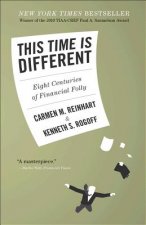
This Time Is Different
495 Kč -

Big Short
298 Kč -
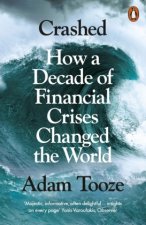
Crashed
463 Kč -

Manias, Panics, and Crashes
722 Kč -

Too Big to Fail
487 Kč -

Global Minotaur
400 Kč -

Animal Spirits
411 Kč -

Big Short
732 Kč -

Stock Market Crashes: Predictable And Unpredictable And What To Do About Them
1116 Kč -

Value of Everything
323 Kč -

Boomerang
268 Kč -

Crisis Economics
302 Kč -

Panic!
302 Kč -
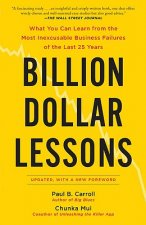
Billion Dollar Lessons
432 Kč -
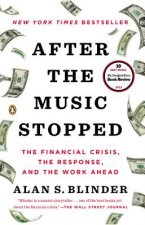
After the Music Stopped
431 Kč -
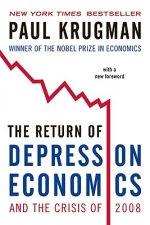
Return of Depression Economics and the Crisis of 2008
420 Kč -

Boomerang
302 Kč -

Origin of Financial Crises
302 Kč -

China's Great Wall of Debt
276 Kč -

Money and Government
356 Kč -
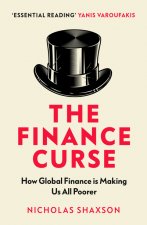
Finance Curse
276 Kč -

House of Cards
490 Kč -

Whoops!
302 Kč -

Capitalism's Crisis Deepens
480 Kč -

End of Alchemy
410 Kč -

Freefall
472 Kč -

House of Debt - How They (and You) Caused the Great Recession, and How We Can Prevent It from Happening Again
349 Kč -
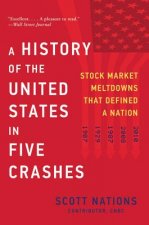
History of the United States in Five Crashes
495 Kč -

End This Depression Now!
351 Kč -

Diary of the Euro Crisis in Cyprus
1512 Kč -

Good Room
493 Kč -

Financial Turmoil in Europe and the United States
703 Kč -

Euro Crisis and Its Aftermath
931 Kč -

Masters of Nothing
552 Kč -

Good Italy, Bad Italy
614 Kč -
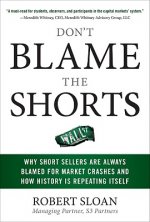
Don't Blame the Shorts: Why Short Sellers Are Always Blamed for Market Crashes and How History Is Repeating Itself
857 Kč -
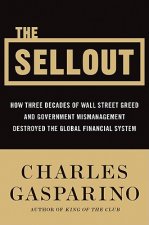
Sellout
693 Kč -

13 Bankers
436 Kč -

Freefall
611 Kč -

Courage to Act
547 Kč -
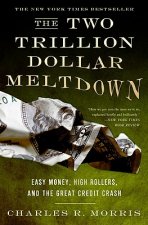
Two Trillion Dollar Meltdown
633 Kč -
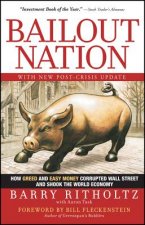
Bailout Nation with New Post-Crisis Update - How Greed and Easy Money Corrupted Wall Street and Shook the World Economy
524 Kč -

Crash of 2008 and What it Means
547 Kč -

Planet Ponzi
342 Kč -
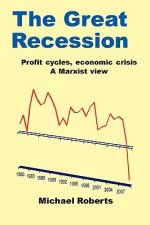
Great Recession
934 Kč -
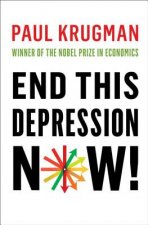
End This Depression Now!
655 Kč -

The End of Alchemy
367 Kč -

Boomerang
678 Kč -

Price of Politics
413 Kč
Osobní odběr Praha, Brno a 12903 dalších
Copyright ©2008-24 nejlevnejsi-knihy.cz Všechna práva vyhrazenaSoukromíCookies



 Vrácení do měsíce
Vrácení do měsíce 571 999 099 (8-15.30h)
571 999 099 (8-15.30h)